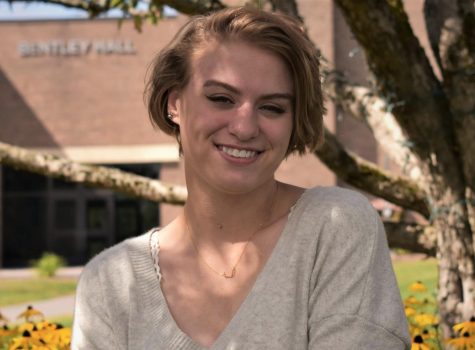Long Range Planning Committee outlines next steps
On Oct. 21, the Long Range Planning Committee – comprised of members of the VSCS executive team, including the board of trustees and Chancellor Jeb Spaulding – released a memo highlighting the next steps in securing the future of the Vermont State Colleges System.
The memo emphasized the previously discussed challenges the college system is experiencing, largely pointing to outside factors such as historically weak demographics, bottom-ranked support from the legislature, and pricing pressures.
Each college is uniquely impacted by these issues. The board is now asking for the presidents of each Vermont state college to report to the board “what specific action steps they are taking and will take” to face these challenges. The action points listed include topics like consistent positive operating results; improved affordability for students; improved retention and graduation rates; and increased system collaborations.
“We’re not alone,” says Chancellor Jeb Spaulding. “We recognize that the forces that are affecting our colleges and universities vary depending on which institution we’re talking about.”
The positive operating results differ for each college, says Spaulding, but has ideas to make programs friendlier to non-traditional students, like developing a faster graduation track.
Trustee Churchill Hindes says, “We’re now transitioning into, what I’d like to say, is the ‘so what are you going to do about it?’ phase.” After collecting the information and identifying the problems centrally, Hindes says the board is turning it over to the separate institutions to begin finding solutions that will fit the needs of each individually. “Everybody’s different…so, we felt that at this point in time, we really needed to acknowledge that we’re not all one plain vanilla school,” says Hindes.
Status reports from the presidents will be delivered at the December and March board of trustee meetings, and a final report in June. The presidents are also asked to review the status of ongoing initiatives, as well as to keep in mind the priorities gathered from suggestions, like friction-free credit transfer; direct admissions; accelerated usage of open-sourced materials; shared services and consolidated business functions; flexible and quicker degree paths; improved retention; and the development of additional alternative revenue streams at the college and system level.
The chancellor’s office has been asked recently how efficiently the office is spending the VSCS’s money, and what it has been contributing to this endeavor. “The executive committee of the board, which I chair, is doing a similar review of the Vermont State College system offices. We’re going through a similar process of cataloguing what we have there, what is the work that’s taking place…and are there options that we ought to be looking in the same way that the individual universities [are,]” says Hindes.
Chancellor Spaulding acknowledges the challenges the VSC system is facing and points out the consolidations have not stopped at the door of the Chancellor’s office. “Our colleges realize that they are different, but if we can consolidate our business functions that are non-student facing so that instead of having four or five or six when we had accounts payable specialists, we have two who service the whole system.”
Spaulding noted that organizational meetings will be happening in the coming weeks to evaluate the number of people who have worked in the office, and how many are essential.
He also talked about the idea of relocating the offices as well. “It’s possible that we don’t all need to be in one location. But as a CEO, I think being able to walk 25 feet to talk to the general counselor [or] to the CFO, you know, has its features too,” says the Chancellor.
The next board of trustees meeting will be held Dec. 2 at NVU-Lyndon.

Senior, Journalism & Studio Art
Grew up in Craftsbury, VT
Spring 2018 - Present
I got a black eye and mild concussion in Las Vegas during a rugby...


